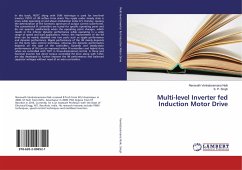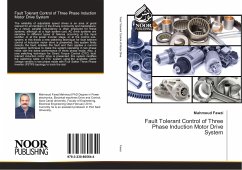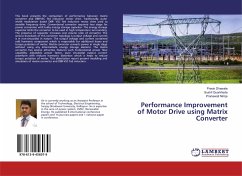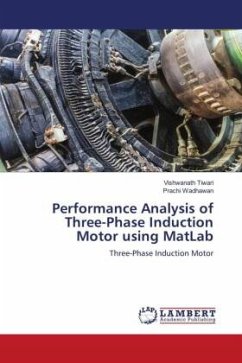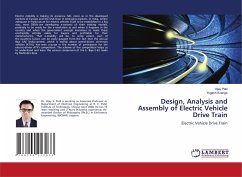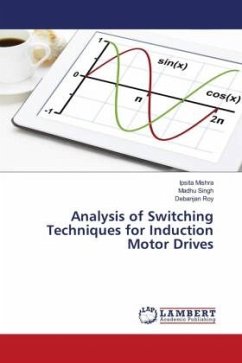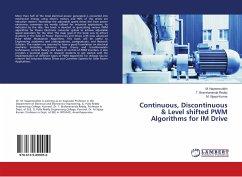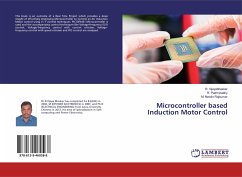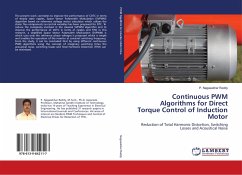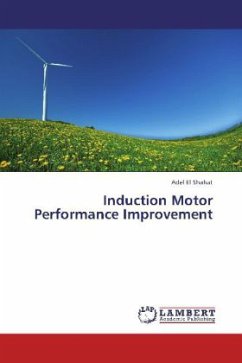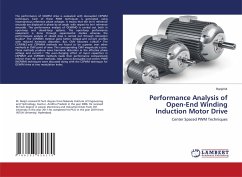
Performance Analysis of Open-End Winding Induction Motor Drive
Center Spaced PWM Techniques
Versandkostenfrei!
Versandfertig in 6-10 Tagen
27,99 €
inkl. MwSt.

PAYBACK Punkte
14 °P sammeln!
The performance of OEWIM drive is evaluated with decoupled CSPWM techniques. Each of these PWM techniques is generated using instantaneous reference phase voltages. It means that the Inv-II reference sinusoids are displaced in phase by an angle with respect to Inv-I reference sinusoids. The performance analysis of OEWIMD is carried out both in open-loop and closed-loop systems. The open-loop performance assessment is done through experimental studies whereas the performanace analysis of closed loop is carried out through simulation studies- The CSPWM3 method gives better voltage and current pr...
The performance of OEWIM drive is evaluated with decoupled CSPWM techniques. Each of these PWM techniques is generated using instantaneous reference phase voltages. It means that the Inv-II reference sinusoids are displaced in phase by an angle with respect to Inv-I reference sinusoids. The performance analysis of OEWIMD is carried out both in open-loop and closed-loop systems. The open-loop performance assessment is done through experimental studies whereas the performanace analysis of closed loop is carried out through simulation studies- The CSPWM3 method gives better voltage and current profiles with reduced harmonic distortion. But, CMV becomes ±Vdc/6.- The CSPWM2 and CSPWM4 methods are found to be superior over other methods in CMV point of view. The corresponding CMV magnitude is zero. These methods produce more harmonic distortion in the effective phase voltage and current.- The over-charging effect of input capacitors in CSPWM1 and CSPWM5 methods made their performance comparetively inferior than the other methods. Also various decoupled non-centric PWM (NCPWM) techniques were discussed along with the CSPWM technique for OEWIM drive at two modulation index.



